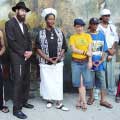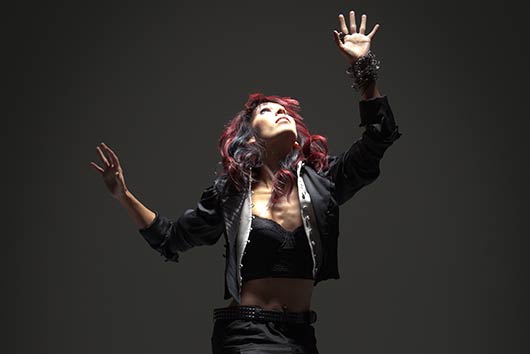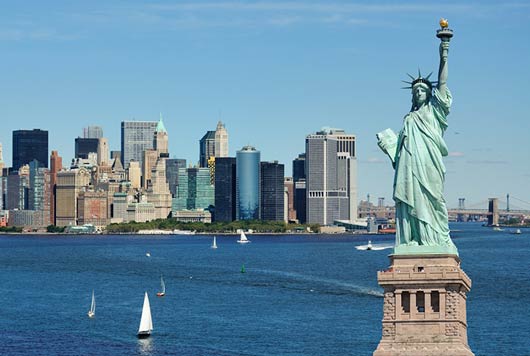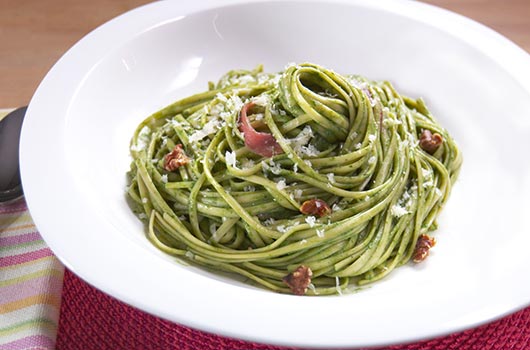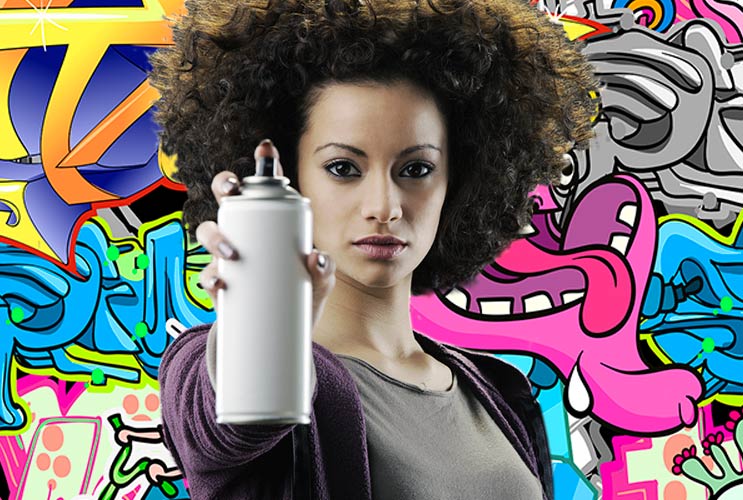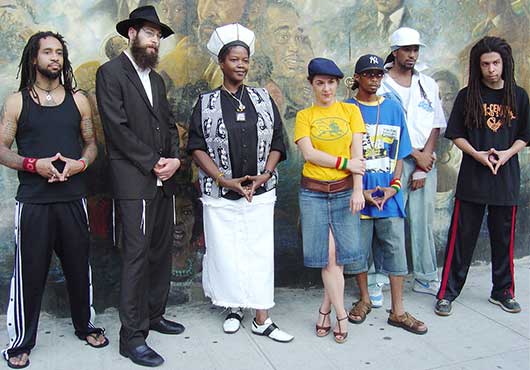
“More love!” says Ras Tewelde, an Italian Rastafarian at Rototom Sunsplash 2012, when we say goodbye after meeting for the first time under a scorching Valencia sun, where the scents of seafood paella, hemp and human musk mingle in the air against the ever-booming bass that thumps from the speakers and then reverberates inside our chests.
A Jewish, Colombian girl who made a movie about Rasta now showing in a Jamaican-flavored reggae festival Spain, I think to myself (referring to me) as I meander towards the dancehall with a smirk on my face, enjoying the juicy and philosophical blend of cultures in that one sentence, and seeing how poignant it really is in light of my film.
Eight years, four countries, countless musicians and innumerable rhythms ago, I began working on my independent documentary film, Awake Zion, which is the story of how of my love for reggae music led me on an unexpected journey that reconnected me with my Jewish roots. Why, I had often asked myself, was the Star of David on almost every reggae album cover I’d ever seen? And why was there a band called Israel Vibration, or an album called Exodus, or song titles like Solomonic Dub? Why was Marcus Garvey a pivotal figure in Rasta history and ideology’ known as ‘The Black Moses’, and why did I hear the melody of If I Were A Rich Man from Fiddler on the Roof in a famous Augustus Pablo dub track?
[youtube]http://www.youtube.com/watch?v=z-VAoAYeP4I[/youtube]
These things had long made me curious—and fifteen years of Jewish yeshiva-style education had etched a profound sense of heritage into my worldview. The more I learned about reggae, the more I wanted to understand how and why it was connected to the symbols I had always prescribed as simply being Jewish. This curiosity led me to more questions—the search to even more connections.
For the last eight years, from Brooklyn and California, to Jamaica and Israel—I set off on a search for the meaning of these unlikely links. By talking to scholars, experts, rabbis, Rastas, reggae enthusiasts, musicologists and musicians alike—my quest became to explore the nature of identity, and to shed light on the power of understanding one’s own Judaism in the context of a different, even counterintuitive, culture and worldview. In doing so, the film challenges preconception and prejudice, and asks everyone—Jewish or not—to entertain the possibility of their own culture as connected to, and even part of, the lore and belief-system of others.
Read Related: Lessons From 4 Women Living Their Dreams
Now I sit and wait for my film to begin, and meanwhile peruse the facial expressions of my audience, as I’m always mildly nervous about what the reactions might be. But when the film’s soundtrack kicks in I am instantly reminded of the power of music and the therapeutic aural balm that it becomes in the face of these delicate cultural conversations. I look around at the people, and I see their heads involuntarily nodding to the rhythm and their lips curling up into sunny little smiles and then I’m reminded of something one of my subjects says in the film: Reggae is music to lift one’s consciousness—the beat of the music is based on the healthy human heart at rest. That is its…secret.
By the time the film ends, I’m hit with a deep sense of pride: first, for trusting, following and sticking with my creative instincts for so long, all of which taught me to love and rely on my artist inside. Second, for teaching myself the basic mechanics of a medium—filmmaking—that was essentially Greek to me before this project ever began; and third, for creating a work that not only depicts and celebrates a culture and a music that I love, but whose essence and mission is driven by a universal heartbeat frequency and conscious sense of togetherness that celebrates the idea of cultural common ground.
For more information about Awake Zion, and to find out about upcoming release and screenings, please join the film’s Facebook page and visit the website.
And take a peek at the trailer here!

